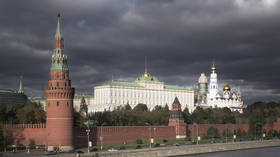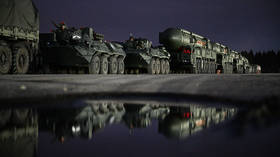Kremlin rules out ‘freezing’ Ukraine conflict

Any proposals involving the freezing of the Ukraine conflict are unacceptable to Russia, Kremlin spokesman Dmitry Peskov told journalists on Wednesday.
He was responding to an article published by Reuters, which discussed options for ending the hostilities between Russia and Ukraine. The outlet suggested that Russian President Vladimir Putin was open to negotiating a ceasefire with incoming US President Donald Trump, and that Moscow and Kiev could soon negotiate a freezing of the conflict, as well as the establishment of a demilitarized zone and some sort of exchange of territories, namely the Kursk and Kharkov Regions.
While Putin has repeatedly stated that Moscow was open to talks and negotiations, Peskov noted that he has also insisted that “any option of freezing this conflict will not work for us,” and said “it is important for us to achieve our goals, which are well known to everyone.”
Moscow has stated that its main goals include the demilitarization and denazification of Ukraine, as well as ensuring that Kiev legally commits to neutrality and abandons its hopes of joining NATO.
Earlier this week, the Kremlin spokesman recalled that Putin had also outlined conditions for ending the hostilities on numerous occasions, and that these steps are “what needs to be done to stop the fighting.”
In June, Putin set out a list of conditions for the immediate commencement of negotiations with Kiev, which included the complete removal of Ukrainian troops from all Russian territories, particularly the Donetsk and Lugansk People’s Republics, as well as Kherson and Zaporozhye Regions.
Last week, during his first direct phone call with German Chancellor Olaf Scholz in two years, Putin also reiterated that Moscow remained open to finding a political and diplomatic resolution to the Ukraine conflict, and said it was Kiev that was refusing to negotiate.
According to the Kremlin, the Russian president also emphasized that the crisis was the “direct result of NATO’s long-standing aggressive policy aimed at creating an anti-Russian bridgehead on Ukrainian territory, while ignoring our country’s interests in the field of security and trampling on the rights of Russian-speaking residents.”
During the call, Putin emphasized that any potential settlement between Moscow and Kiev would inevitably have to take into account Russia’s security interests, recognize the new territorial realities, and “eliminate the root cause of the conflict.”













